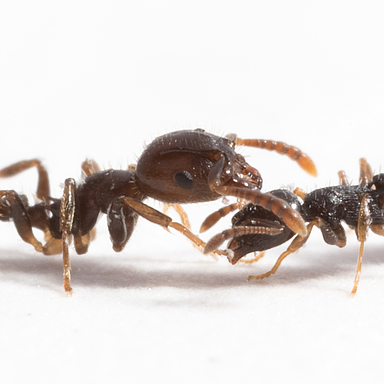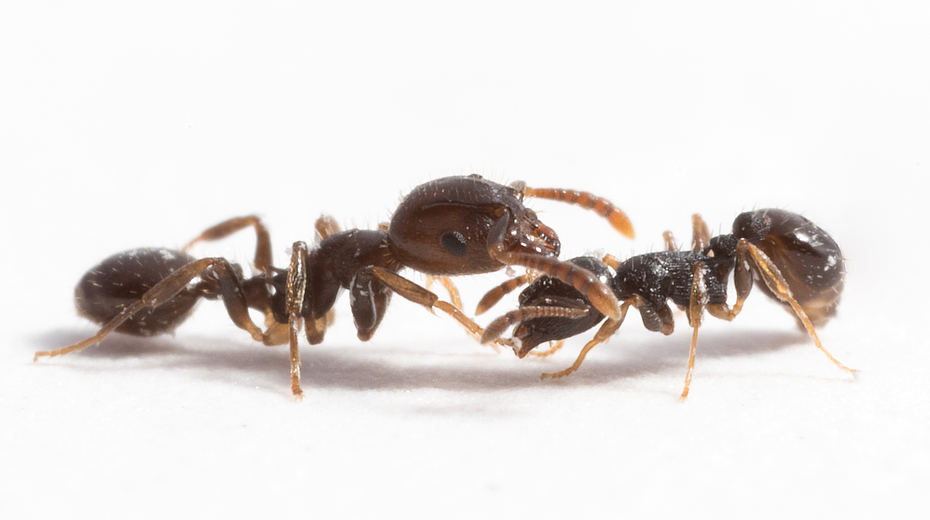Project A.19

- PhD student: Amirhossein Karimizadeh
- Supervisor: Susanne Foitzik
- Co-Supervisors: Carlotta Martelli
- Further TAC-members: Hugo Darras
- Research Group
My PhD project aims to unravel the transcriptomic and genomic changes associated with the evolution of slavemaking behavior in ants. A primary focus is on the consequences of the loss of olfactory receptors in the genomes of these social parasites, which has occurred convergently across multiple independent origins of slavemaking behavior. Additionally, I will investigate shifts in gene expression and neurosensorial activity in the antennae and brain anatomy of these parasites compared to their hosts.
Ant slavery refers to a form of social parasitism wherein slavemaking ants raid and steal the worker brood from host colonies. Upon emergence, these exploited host workers exhibit typical worker behaviors, tending to the brood and queen of the social parasite. This behavior enables slavemaking ants to exploit their workforce effectively. Notably, slavemaking behavior has evolved independently ten times, with six occurrences specifically in the ant genera Temnothorax and Leptothorax.
Slavemaking ants have experienced a convergent loss of olfactory receptors in their genomes (Jongepier et al. 2023), likely due to their reduced communication needs, as enslaved host workers undertake tasks such as foraging and brood care. My research utilizes neurobiological experiments, gene expression analyses, and bioinformatics to determine if hosts possess a broader range of olfactory perception compared to slavemaking ants, attributable to the convergent loss of olfactory receptors. This investigation involves odor perception screens using antennal electrophysiology techniques and antennal transcriptomics to identify any changes in odorant receptor gene expression. Additionally, I examine brain anatomy to understand the potential correlation between the loss of odorant receptor genes and a reduction in glomeruli within the antennal lobes.
Finally, I will identify and functionally characterize slavemaker-specific candidate genes through RNAi experiments. This includes genes potentially encoding immune or wound-healing proteins, which might be under stronger selection in slavemaking ants due to the highly dangerous nature of host colony takeovers, during which many slavemaking queens are injured by host defenders. Our comprehensive research aims to elucidate the mechanisms driving the evolution of ant slavery. By integrating neurobiological, genetic, and behavioral approaches, my project will contribute to our understanding of the adaptive strategies and their molecular underpinnings employed by social parasites.
